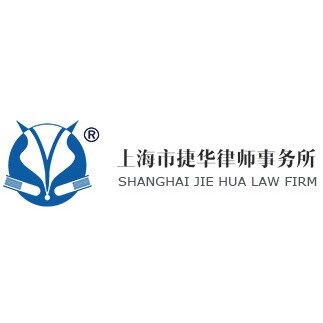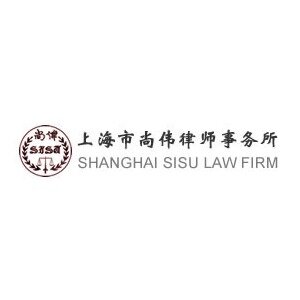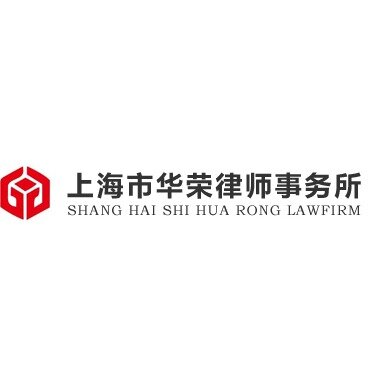Best Landlord & Tenant Lawyers in Shanghai
Share your needs with us, get contacted by law firms.
Free. Takes 2 min.
Free Guide to Hiring a Real Estate Lawyer
List of the best lawyers in Shanghai, China
About Landlord & Tenant Law in Shanghai, China
The landlord and tenant law in Shanghai, China, is designed to regulate the rental relationships between property owners and their tenants, ensuring that both parties' rights and obligations are clearly defined and adhered to. The legal framework derives from national legislation, including the Contract Law of the People's Republic of China and various local ordinances that address the specifics of housing regulations in Shanghai. Understanding these laws is crucial for both landlords and tenants to navigate contractual agreements, address disputes, and ensure a harmonious rental relationship.
Why You May Need a Lawyer
In the realm of landlord and tenant relationships, several issues may arise that necessitate legal assistance:
- **Contractual Disputes:** When disagreements over lease agreements cannot be resolved through negotiation, a lawyer can provide guidance and advocacy.
- **Eviction Proceedings:** If eviction is necessary, legal counsel is advised to ensure all procedures comply with local laws and to protect one's rights.
- **Deposits and Repairs:** Disputes over the return of security deposits or maintenance responsibilities can benefit from legal interpretation and intervention.
- **Rent Increases:** If a landlord improperly raises the rent or if the calculations are disputed, legal advice can be crucial.
- **Unlawful Conduct:** Any illegal actions by either the tenant or landlord, such as harassment or unlawful entry, may require legal recourse.
Local Laws Overview
Shanghai's specific landlord-tenant regulations encompass several key aspects:
- **Lease Agreements:** These must be in writing and should clearly outline terms including the lease term, rent, payment schedule, and responsibilities for utilities.
- **Security Deposits:** Typically, landlords can require a security deposit of up to one to three months' rent, which must be returned upon lease termination if conditions are met.
- **Rent and Payment:** Local laws regulate how and when rent should be paid and address any penalties for late payments.
- **Tenant Rights:** Tenants have the right to a safe, livable environment, and the law provides mechanisms for dispute resolution if these conditions are breached.
- **Eviction Protocols:** Legal procedures must be followed for evictions, ensuring that due process is given to tenants before any forced removal from the property.
Frequently Asked Questions
What should I do if my landlord refuses to return my security deposit?
If your landlord unfairly withholds your security deposit, you may consider legal action. Gathering documentation and seeking legal advice can be beneficial.
How can I legally withhold rent for necessary repairs?
To withhold rent legally, tenants must typically notify the landlord of required repairs and give sufficient time to address the issues before considering such action.
Is an oral lease agreement valid in Shanghai?
While oral agreements may be recognized, it is highly recommended to have written lease agreements to avoid disputes and clearly define terms.
What are the legal grounds for eviction in Shanghai?
Common legal reasons for eviction include non-payment of rent, lease violations, and property damage beyond normal wear and tear.
Can a landlord increase rent during the lease period?
Rent increases are generally bound by the lease terms. Any adjustments should be outlined in the lease, and unauthorized increases may be contested.
What can I do if my landlord enters my rental property without permission?
Unauthorized entry by a landlord violates tenant privacy rights, and tenants can seek legal options or file complaints with local authorities if this occurs.
How can I verify if my landlord is the legal owner of the property?
Request ownership documentation from your landlord, or consult local housing registration offices to verify property ownership.
Are there any tenant associations or rights groups in Shanghai?
Several local organizations advocate for tenant rights; contacting them can provide support and information specific to your needs.
What are my options if my landlord does not carry out agreed repairs?
If repairs are neglected, you can issue formal notices to the landlord and, if necessary, involve legal counsel to enforce repair obligations.
What happens if I terminate a lease early?
Early termination consequences depend on lease terms. Typically, tenants may forfeit their deposit or owe rent until a replacement tenant is found.
Additional Resources
For further assistance, consider contacting the following:
- **Shanghai Housing Administration Bureau:** Offers guidance on housing policies and tenancy issues.
- **Legal Aid Centers:** Provide free or low-cost legal services for eligible residents.
- **Consumer Protection Associations:** Can mediate disputes between tenants and landlords.
- **Local Courthouses:** Offer resources and directions for filing legal claims or disputes related to tenancy matters.
Next Steps
If you need legal assistance regarding landlord and tenant issues in Shanghai, start by:
- **Consulting with a Local Attorney:** Seek a lawyer specializing in tenancy law to discuss your case.
- **Documenting All Interactions:** Keep records of all communications and agreements with your landlord or tenant.
- **Exploring Alternative Dispute Resolution (ADR):** Mediation can often resolve disputes without resorting to litigation.
- **Gather Information:** Collect all relevant documentation relating to your case, such as lease agreements, correspondence, and receipts.
Lawzana helps you find the best lawyers and law firms in Shanghai through a curated and pre-screened list of qualified legal professionals. Our platform offers rankings and detailed profiles of attorneys and law firms, allowing you to compare based on practice areas, including Landlord & Tenant, experience, and client feedback.
Each profile includes a description of the firm's areas of practice, client reviews, team members and partners, year of establishment, spoken languages, office locations, contact information, social media presence, and any published articles or resources. Most firms on our platform speak English and are experienced in both local and international legal matters.
Get a quote from top-rated law firms in Shanghai, China — quickly, securely, and without unnecessary hassle.
Disclaimer:
The information provided on this page is for general informational purposes only and does not constitute legal advice. While we strive to ensure the accuracy and relevance of the content, legal information may change over time, and interpretations of the law can vary. You should always consult with a qualified legal professional for advice specific to your situation.
We disclaim all liability for actions taken or not taken based on the content of this page. If you believe any information is incorrect or outdated, please contact us, and we will review and update it where appropriate.

















